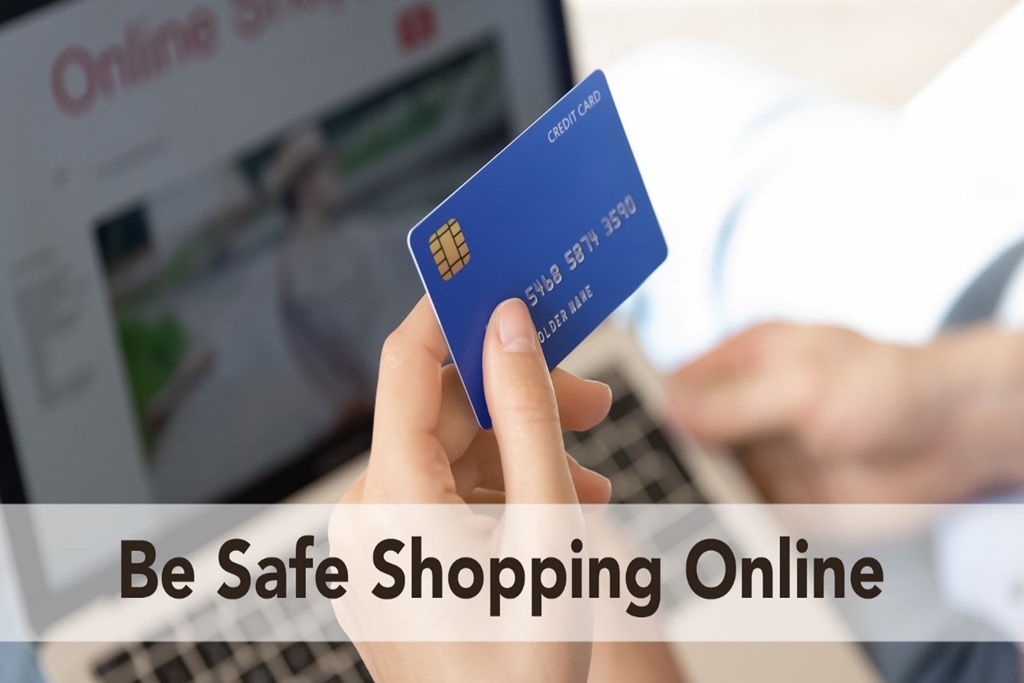
04 Jun Safe Shopping Online
Online shopping is more prevalent than ever. Make sure to do everything you can to avoid becoming a victim of cybercrime:
- Secure mobile devices and computers. Keep the operating system and application software updated/patched on all of your computers and mobile devices. Also be sure to check that any antivirus/antispyware software installed is running and receiving automatic updates.
- Limit your online shopping to merchants you know and trust. If you know the store, shopping their online store is very safe. If you have issues, you can always visit the brick-and-mortar store. But, if you don’t know the store, be weary. Especially ads for stores that pop up on social media sites. It may be legit but take precautions. Conduct your own background check by checking with the Better Business Bureau or the Federal Trade Commission, or at online sites that review e-stores. If the store isn’t reviewed or doesn’t have good reviews, don’t order from their website.
- Look for “https” when making an online purchase. The “s” in “https” stands for “secure” and indicates that communication with the webpage is encrypted. If you submit your credit card information through a website, make sure the site is secure. Look for a padlock or key icon in the browser’s status bar and “https” appears in the website’s address bar before making an online purchase. Also keep your browser software up to date.
- Password protect your mobile device and computer. It’s one of the most important steps to secure your mobile device and computer. When you create an account with the merchant, be sure to use a strong password. Use at least eight characters, with numbers, special characters, and upper and lowercase letters.
- Do not respond to offers that seem too good to be true. An online store whose prices seem too good to be true, or that promises too much at too low a price is suspicious. The online store may not have come by these items legally, or you may never receive them, or you may get a bait and switch and end up with something you didn’t order.
- Avoid scams and fraud. Don’t ever give your financial information or personal information over email or text. If you receive an email asking for donations, contact the organization directly to verify the request.
- Do not use public computers or public wireless for your online shopping. Public computers may contain malicious software that steals your credit card information when you shop online. Criminals can also intercept traffic on public wireless networks to steal credit card numbers and other confidential information.
- Pay by credit card, not debit card. It’s safer to shop on the internet with a credit card rather than debit card. Credit cards are protected by the Fair Credit Billing Act and may reduce your liability if your information was used improperly.
- Print your online transactions. Print or save records of your online transactions, including the product description and price, the online receipt, and the emails you send and receive from the seller. Carefully review your credit card statements as soon as you receive them to confirm that all charges are legitimate. Contact your credit card company immediately if you have unauthorized charges on your account.
- Review privacy policies. Review the privacy policy for the website/merchant you are visiting. Know what information the merchant is collecting about you, how it will be stored, how it will be used, and if it will be shared with others.




Sorry, the comment form is closed at this time.